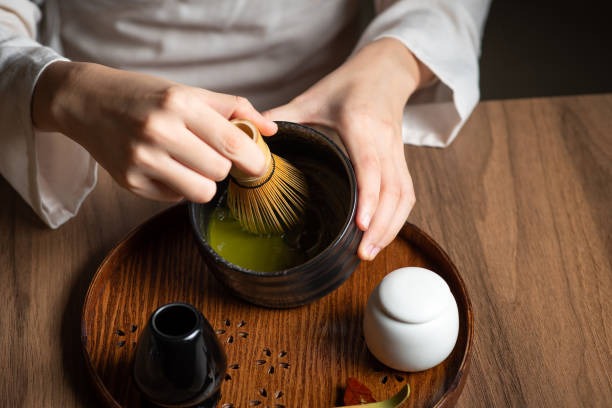Health and Beauty
6 min read
Best Skincare Routines for Glowing Skin
October 08 , 2025
By Sharib

A soft, favorable glow typically characterizes healthy skin. It is not a shiny oily glow, but a subtle, hydrated, even-toned skin with a sufficiently looked-after skin barrier. While a glow can be achieved with makeup, a natural glow is developed over time through an understanding of the skin, followed by protective and restorative routines. While many people focus solely on products, radiant skin is typically the result of a balanced combination of a dedicated routine, intelligent product application, and lifestyle modifications.
1. Skin Before Starting
Before establishing a skincare routine, take the time to identify your skin type and pinpoint your primary concerns. Skin types can also be categorized as dry, oily, combination, or sensitive. Dry skin is tight and can flake. Oily skin creates a shiny surface, and excessive sebum is produced. In combination skin, some areas may be oily, while others are dry. Sensitive skin is reactive and responds to specific products. Identifying Dry skin means you will have to use creams and nourishing oils; oily skin will be better treated with gels. Your primary issues must also be identified, whether it be dull skin, pigmentation, fine lines, or breakouts. There is no single routine that will give you glowing skin. Individuals struggling with dark spots would benefit most from using a vitamin C brightening product, while those with clogged pores would benefit more from exfoliation. Understanding these issues will give you the most functional and skin-healthy routine.
2. Morning and Night Routines
To establish a glowing skin routine, it is essential to have both morning and nighttime steps. During the morning, the priorities become protection and hydration. Throughout the daylight hours, your skin is exposed to UV rays, pollution, and free radicals, all of which can dull the complexion and accelerate aging. A morning routine, therefore, should cleanse the skin, apply antioxidants for defense, lock in hydration, and always finish with sunscreen. At night, your skin shifts into repair mode. This is when the best treatments, such as retinol, exfoliating acids, and rich creams, can support the skin's natural renewal process overnight. Ingredients can function optimally without environmental stressors, and this is precisely when stressors are greatest during the day. By consistently practicing both morning and evening care, the balance the skin needs to stay strong and radiant is undeniable.
3. Skin Prep and Toning
After cleansing, a toner helps balance and prepare the skin for hydration. Unlike older versions that often-contained alcohol and dehydrated the skin, modern toners are designed to be hydrating and skin-calming. Hyaluronic acid, rose water, and glycerin are great ingredients to look for because they help the toner lock in the skin's moisture. One of the popular "7-skin method" from Korean skincare involves the application of multiple thin layers of toner. This will help the skin gradually and fully absorb hydration, leaving it plump and glowing. For those with dehydrated and dull skin, even one or two layers of a hydrating toner can make a significant difference.
4. Radiance Fostering Treatments and Actives
Brighter skin comes from treatment products that target specific improvements. Brightening and correcting uneven skin tone, while protecting the skin from epidermal assault, is the role of the antioxidant vitamin C. Niacinamide performs other tasks, including reducing discoloration, refining the glow, enhancing surface texture, and strengthening the skin barrier. Adding defoliation also helps maintain radiance. Dead skin cells and dull, rough surfaces are indicators that defoliation is required. Light reflection and even skin renewal are achieved by refreshing the skin with the use of chemical exfoliants, such as glycolic, lactic, and salicylic acids, applied two to three times weekly. Defoliation can also be damaging by creating hypersensitivity and irritation. Retinol and other retinoids exhibit significantly improved radiance effects when used at night. Retinoids stimulate cell turnover, diminish superficial lines, and alter the skin's color, resulting in a clearer and more luminous appearance over time. It is vital to use retinol in a staggered approach, as smaller amounts are needed to avoid a build-up, and irritation can occur with large quantities used too soon.
5. Moisturizing and Locking in Hydration
Moisturizer holds the entire routine together. It locks in hydration and shields the skin, making it appear smooth and pliable. Your skin type will determine what moisturizer is best for you. Lightweight gel creams are best for oily skin, while dry skin will benefit from thicker, emollient-rich creams. It is helpful for the skin barrier to have ingredients such as ceramides, squalane, and fatty acids. These ingredients repair and fortify the skin barrier, preventing dehydration and maintaining the skin's resilience. Some individuals practice the "sandwich method," which involves layering hydrating serums, followed by a moisturizer, and sealing everything in with a balm or sleeping mask to lock in the moisture overnight. This method provides a long-lasting effect of hydration and a rejuvenating feel in the morning.
6. Importance of Sunscreen
Every skincare routine must include sunscreen. Your skin may develop premature aging, dark spots, and uneven skin tone due to exposure to UV radiation. Using even the best skincare products will not undo the damage caused by unprotected skin exposure. Make it a habit to apply a broad-spectrum sunscreen with SPF 30 to your skin every morning. Sunscreen will not only protect your skin but also preserve the glowing skin from your skincare routine. It will even help with pigmentation, uneven skin tone, and skin looseness over time. If you dislike sunscreen, there are new, lightweight, hydrating, or mattifying sunscreens available to help with daily use.
7. Lifestyle and the Inner Glow
What you eat and drink shows up on your skin. A diet full of antioxidants, vitamins, and omega-3 fatty acids will keep your skin looking healthy. Berries, nuts, leafy greens, and fatty fish are great skin barrier protectors and inflammation reducers. Drinking water will help keep your skin hydrated and plump. Healthy lifestyle habits, such as getting enough sleep and managing stress, are equally vital. Sleep facilitates skin repair, and chronic stress inevitably causes the skin to appear dull and lifeless. Good blood flow, especially from exercise, can also help provide that glow. All of this is to say that skin care products will have a limited effect without lifestyle changes, which is why a holistic approach is best.
Well-structured skincare routines embody balance, smart choices, and consistency. A good routine consists of gentle cleansing, daily hydration, vitamin C- or retinol-targeted treatments, a moisturizer to support the skin barrier, and daily sunscreen application. Healthy daily habits and weekly boosters add to the effect, but simple daily care is the most important. Achieving glowing skin is not about perfection or an overly complex routine. It's about tuning in to your skin and consistently giving it what it needs. With time, these practices restore a natural glow that no fleeting solution can replicate.
live smarter
Shop smarter, live better, and stay ahead of the trends with our reliable recommendations!
trending
Health and Beauty
5 min read
Sihoo: Comfortable Chairs That Make Work and Study Easier
Health and Beauty
5 min read
Health Made Simple with Elavate
Health and Beauty
5 min read
Polar Haircare: Simple Hair Care for Everyday Life
Health and Beauty
6 min read
Natural Wellness Support for Daily Strength and Healthy Living
Health and Beauty
7 min read






